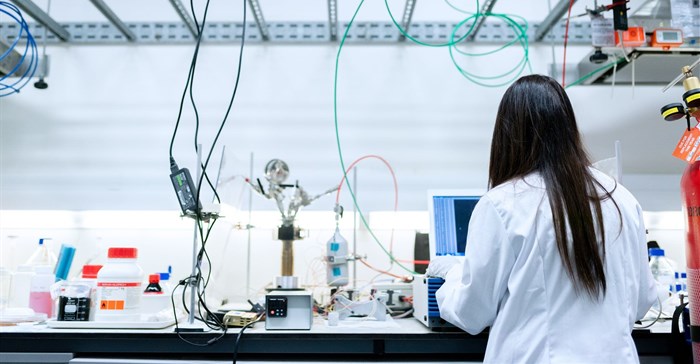While there is still a need to invest in the profession to develop women, South Africa has noticed a growth in females registered with the Engineering Council of South Africa (ECSA), Deputy President Paul Mashatile has said.

Source: Thisisengineering RAeng/Unsplash
“We are now seeing an average of 35% year-on-year growth among registered female engineers in the database of the council,” the Deputy President told the National Council of Provinces on Thursday.
He said there are 7,000 women engineers who are currently registered with the ECSA.
“We agreed that there is a need to ensure that we deliberately target women to consider entering the engineering profession and encourage those who are not registered to register.”
The country’s second-in-command was answering a question about whether the state has any measures to address the dire shortage of women in the engineering profession.
“In our work leading the Human Resource Development Council, we have made a long-term commitment to invest in the skills revolution, especially among women, youth, and persons with disabilities, to build a productive and globally competitive society.”
He also told Parliament that he interacted with the ECSA president Refilwe Buthelezi, CEO Dr Bridget Samula and many engineers in August this year at the UNESCO Africa Engineering gathering.
“We agreed that there is a need to ensure that we deliberately target women to consider entering the engineering profession and encourage those who are not registered to register. Empowering female engineers is paramount in achieving sustained development and global competitiveness.”
Women empowerment
He said government is championing the implementation of several women empowerment programmes like the Women Economic Assembly (WECONA) launched by President Cyril Ramaphosa in 2021.
WECONA, he explained, is a catalyst platform for women-owned enterprises anchored on collaboration between the government, private sector, and civil society.
“This is an ongoing initiative to encourage women to be economically active to bring together the private sector, government and civil society to drive change in the economic landscape.”
Meanwhile, he said the AgriSETA has identified several priority interventions from the Economic Reconstruction and Recovery Plan that speak to empowering women in agricultural engineering and agricultural scientists in the sector.
Together with the Sector Education Training Authorities (SETAs), he said government aims to simplify funding application processes to avoid delays in processing funding for third parties.
This, he noted, slows the government’s efforts to address challenges plaguing women in the sector.
“While government continues to implement programmes to empower women in the engineering sector, there is a need to address the structural challenges of social and gender inequalities hindering their progress.
“As government, we provide social, political, and economic conditions for women to thrive, especially in critical engineering sectors, with our social partners and businesses.”
Agricultural economy
Mashatile also noted the report issued by Statistics South Africa (Stats SA) on the agriculture, forestry and fishing industry, which highlighted an increase of 4.2% in the second quarter of 2023, contributing 0.1 of a percentage point to gross domestic product (GDP) growth.
“Increases in the production of field crops and horticulture products drove this rise in output. Favourable weather conditions, increased cultivation, and increased export demand provided further support,” he explained.
Port of Mossel Bay, he said, has been identified as one of the key strategic points in the market-oriented agricultural economy.
“The improvement of the operational capacity of Mossel Bay Harbour also forms part of the implementation of the Economic Reconstruction and Recovery Plan, which is aimed at, among other things, modernising and reforming network industries and associated state-owned enterprises.”
He announced there are also plans to boost exports, create employment opportunities, and improve innovation.
Improving operational capacity
“According to the Ministry of Public Enterprises, the improvement of the operational capacity of Mossel Bay Harbour is a long-term project. Therefore, concepts and designs are continuously being refined.”
The first phase, he said, is planned for completion by the end of the 2026/27 fiscal year, while the last step is scheduled for completion by the 2029/30 fiscal year.
The country’s second-in-command was responding to the question about the role in leading government efforts to fast-track land reform and the coordination of programmes to accelerate agricultural support to farmers to access international markets and concrete steps in place to improve the operational capacity of Mossel Bay Harbour.












































